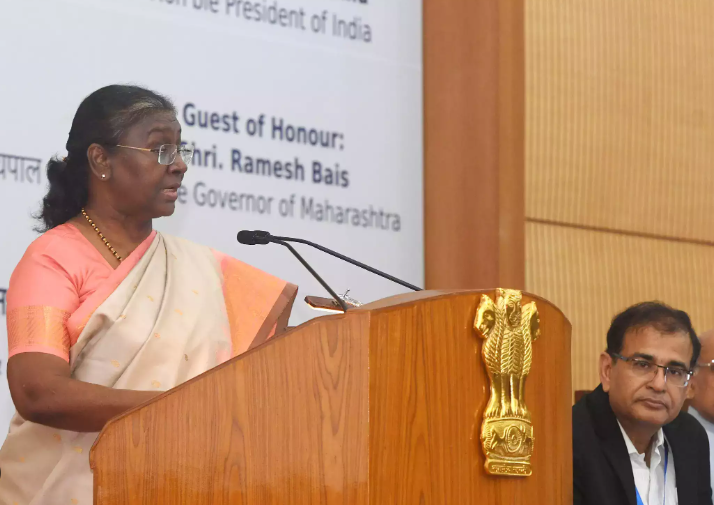Context:
Recently, the president of India launched India’s first home-grown Gene Therapy for cancer at IIT Bombay.
Key highlights
- President of India said that the launch of India’s first gene therapy is a major breakthrough in our battle against cancer.
- This line of treatment, named “CAR-T cell therapy”, is now accessible and affordable, it provides new hope for the whole of humankind. It will be successful in giving new lives to countless patients.
- This therapy has been available in developed nations for some time, but it is extremely costly, and beyond the reach of most patients around the world.
- Now, it is the world’s most affordable CAR-T cell therapy in India.
- This achievement reflects India’s innovation under the ‘Make in India’ initiative and promotes self-reliance in healthcare, aligning with the vision of ‘Atmanirbhar Bharat’.
- India’s first CAR-T cell therapy is developed through collaboration between the Indian Institute of Technology, Bombay, and Tata Memorial Hospital in association with industry partner ImmunoACT.
About CAR T-cell therapy
- CAR T-cell therapy, or Chimeric Antigen Receptor T-cell therapy, is a type of immunotherapy treatment that uses immune cells called T cells that are genetically altered in a lab to enable them in locating in destroying cancer cells more effectively.
- The goal of CAR T-cell therapy is to enhance the patient’s immune system to effectively target and destroy cancer cells.
How does therapy work?
- T cells, also known as T lymphocytes, are a type of white blood cell or immune cell that play a central role in the immune response.
- It involves a highly personalized approach where a patient’s T cells are extracted from their body. These T cells are then genetically modified in a laboratory to express a chimeric antigen receptor (CAR) on their surface.
- The CAR is designed to specifically target a protein on the surface of cancer cells.
- Once the T cells have been engineered to express the CAR, they are multiplied in the laboratory to create a large population of these modified cells.
- Millions of the CAR T cells are grown in the laboratory and then given to the patient by infusion.

- The CAR T cells are able to bind to an antigen on the cancer cells and kill them.
Significance
- Precision Treatment: It is highly personalized and ensures precision which minimizes damage to healthy cells and reduces side effects compared to traditional treatments like chemotherapy.
- Rapid Recovery: By avoiding the use of aggressive chemotherapy, CAR T-cell therapy facilitates a faster recovery for patients. It crucial for patients who have already undergone multiple rounds of treatment and may be physically debilitated.
- Potential for Lifelong Immune Memory: There is the potential for CAR-T cells to create a sort of immune memory, helping the body recognize and fight cancer if it attempts to return.
- Reduced Relapse Rates: Early indications suggest lower rates of cancer relapse, particularly for patients in the early stages of the disease.
Challenges
- Cost Barriers: CAR-T cell therapy can be expensive, limiting accessibility for many patients.
- Limited Applicability: Currently, CAR-T cell therapy is most effective for certain blood cancers, restricting its use for other types of cancer.
• Unknown Long-Term Effects: The therapy may have side effects, like fever, chills, and confusion and its long-term impact is still under study.
- The most common side effect of CAR T-cell therapy is called Cytokine Release Syndrome, or CRS. About 70-90% of patients experience it.
- The other side effect is known as “CRES,” which stands for “CAR T-cell-related encephalopathy syndrome.” It typically starts around day five after the infusion.
Way Forward
- Research and Development: Invest in research to broaden the range of cancers treatable with CAR-T cell therapy.
- Training: Provide training for healthcare professionals in the administration and management of CAR-T cell therapy.
- Collaboration: Encourage international collaboration for knowledge exchange and resource sharing to make this therapy more accessible and affordable
- Regulatory Support: Create supportive policies that facilitate the integration of CAR-T cell therapy into standard cancer treatment protocols.

